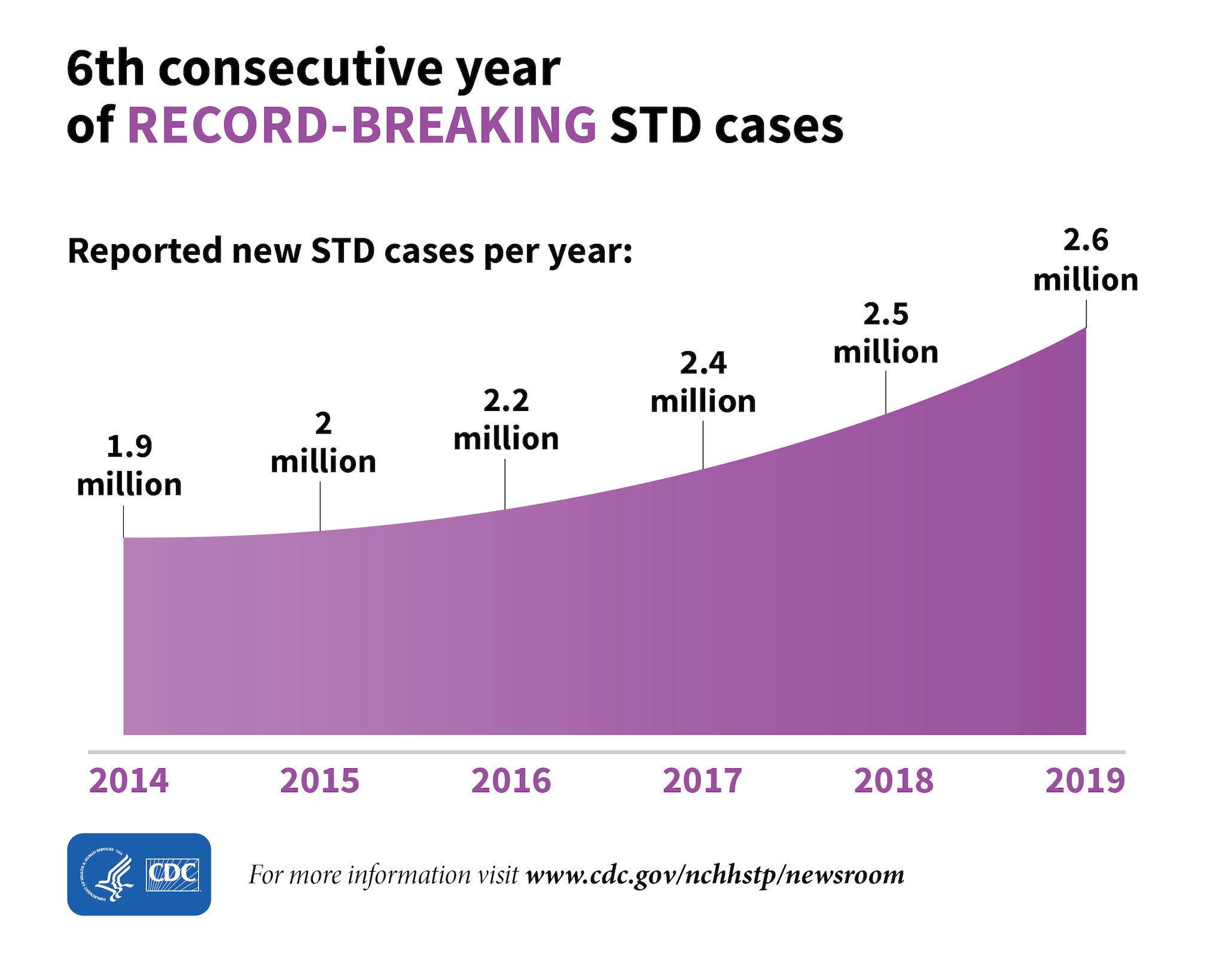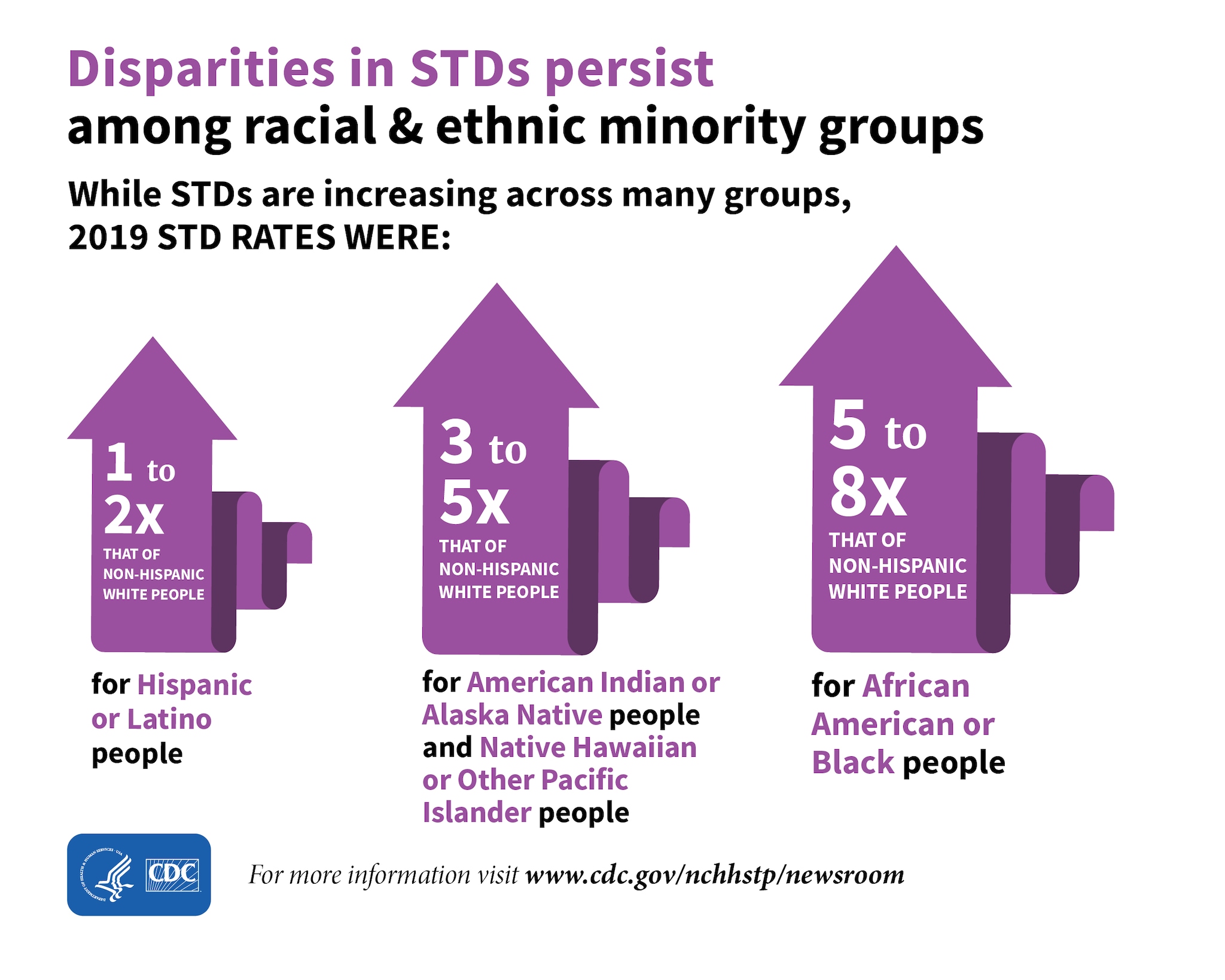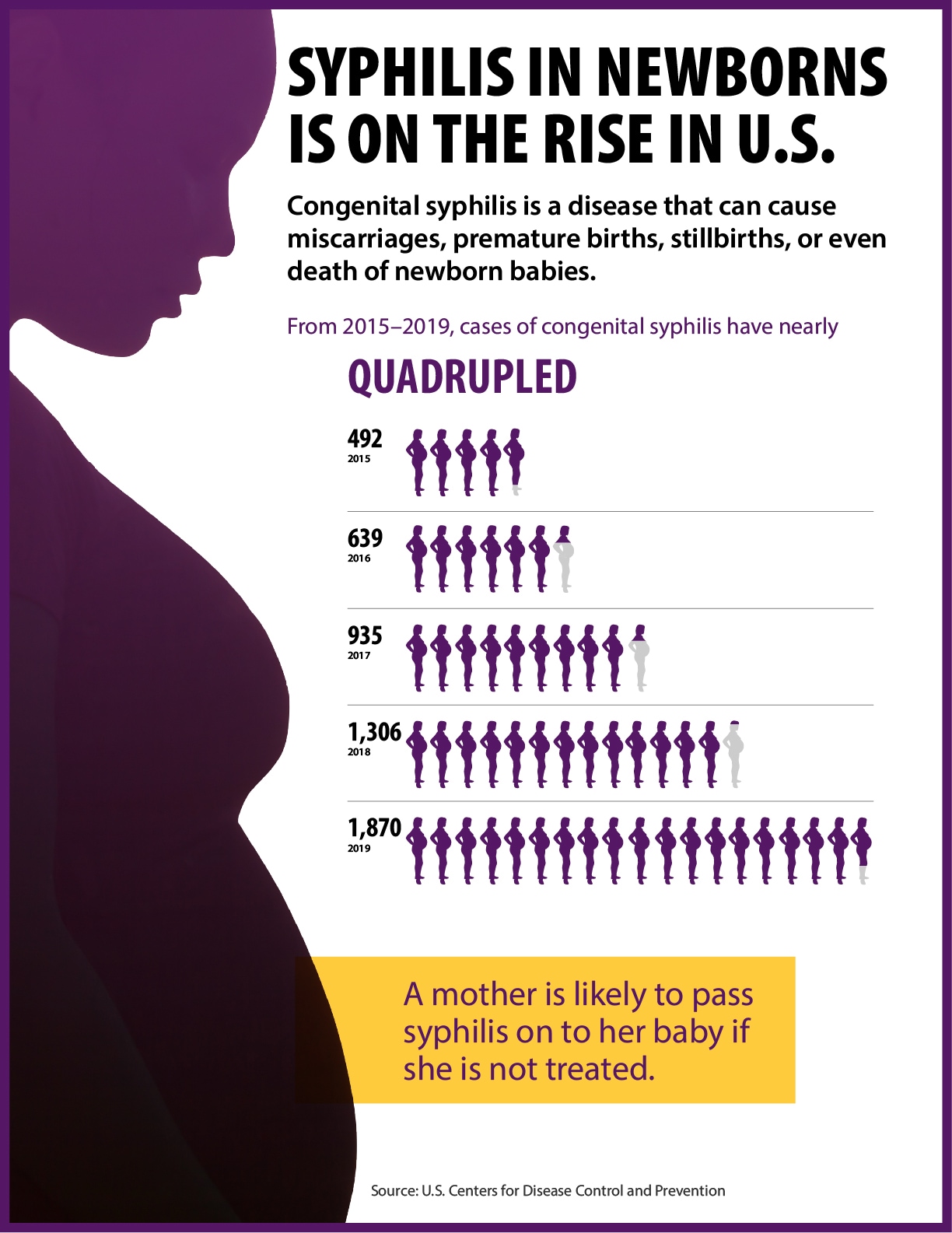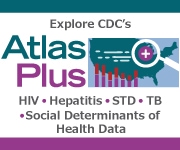Reported STDs reach all-time high for 6th consecutive year
April 13, 2021 – More than 2.5 million cases of chlamydia, gonorrhea & syphilis reported in 2019
New CDC data show that reported annual cases of STDs in the United States continued to climb in 2019, reaching an all-time high for the sixth consecutive year.
-
- Press Release: Reported STDs reach all-time high for 6th consecutive year
- Comunicado de Prensa: Las enfermedades de transmisión sexual (ETS) notificadas alcanzan un nivel sin precedentes
- Fact Sheet: Reported STDs in the United States, 2019pdf icon
- Full Report: Sexually Transmitted Disease Surveillance, 2019
Graphics:
These high-resolution, public domain images are ready to download and print in your publication. Click on a graphic to see it in high-resolution. These images are in the public domain and are thus free of any copyright restrictions. As a matter of courtesy, we ask that the content provider be credited and notified of any public or private usage of an image.
The line graph shows the reported new STD cases per year from 2014 to 2019 and that 2019 was the 6th consecutive year of record-breaking STD cases.
There were approximately 1.9 million reported new STD cases in 2014, 2 million in 2015, 2.2 million in 2016, 2.4 million in 2017, 2.5 million in 2018, and 2.6 million in 2019.
The graphic shows that while STDs are increasing across many groups, in 2019 disparities in STDs persisted among some racial and ethnic minority groups.
In 2019 STD rates for Hispanic or Latino people were 1-2 times that of non-Hispanic White people
In 2019 STD rates for American Indian or Alaska Native and Native Hawaiian or Other Pacific Islander people were 3-5 times that of non-Hispanic White people
In 2019 STD rates for African American or Black people were 5-8 times that of non-Hispanic White people.
The graphic states that congenital syphilis is a disease that can cause miscarriages, premature births, stillbirths, or even death of newborn babies.
The graphic shows that cases of congenital syphilis have nearly quadrupled between 2015 and 2019. There were 492 cases of congenital syphilis in 2015, 639 cases in 2016, 935 cases in 2017, 1,306 cases in 2018, and 1,870 cases in 2019.
The graphic states a mother is likely to pass syphilis on to her baby if she is not treated.




